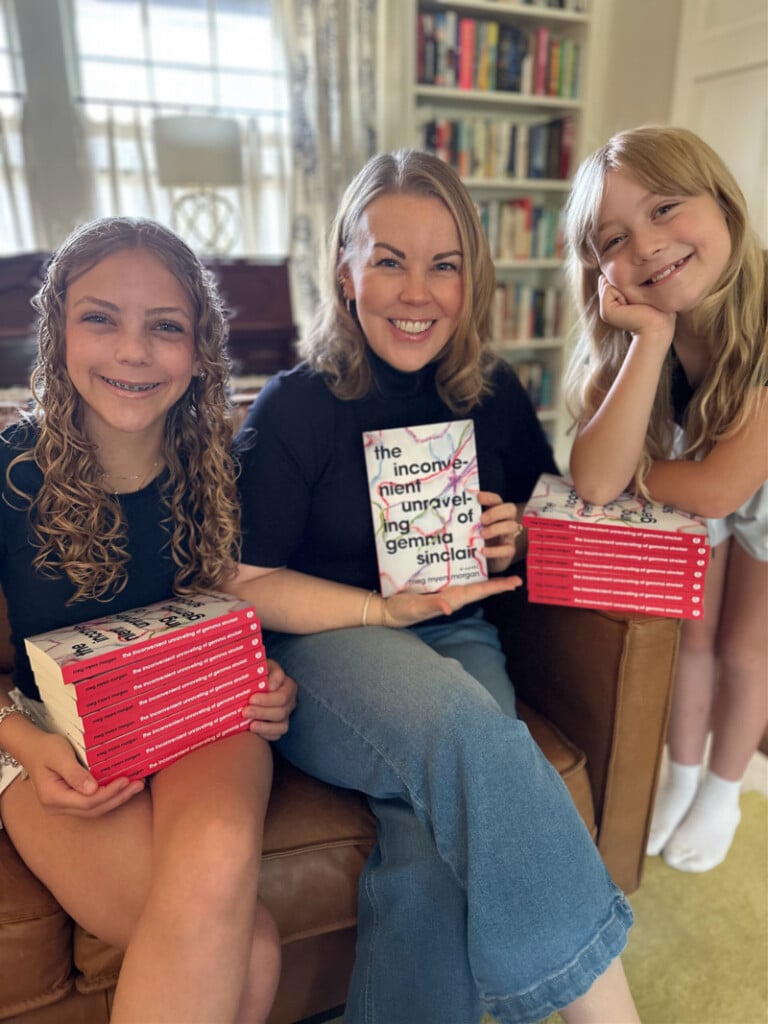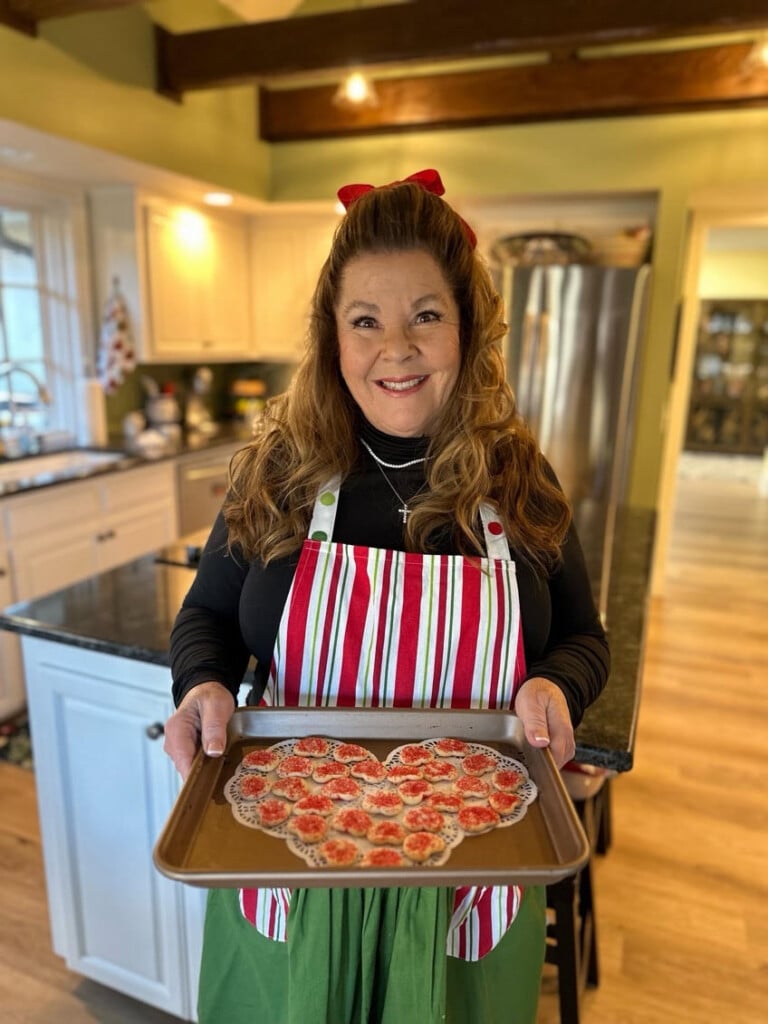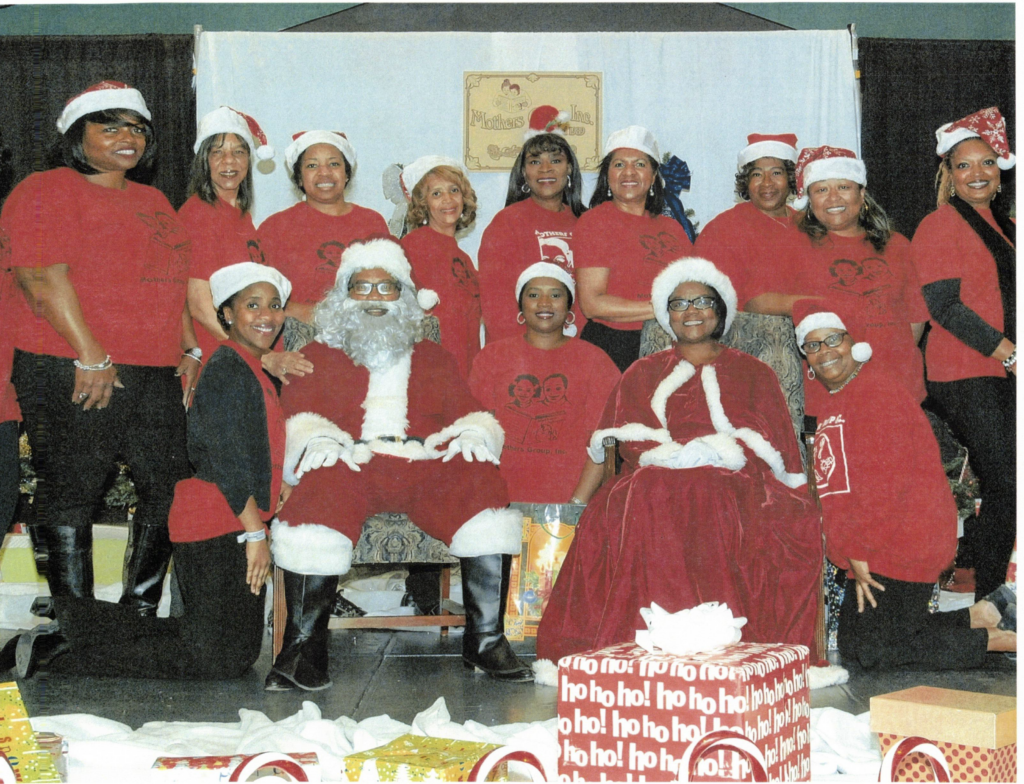Dr. Meg Myers Morgan: Intentionally Unraveling Motherhood and Mental Health

When best-selling author and professor Dr. Meg Myers Morgan decided to make the leap from nonfiction to fiction, she wasn’t just changing genres, she was stepping into deeper storytelling rooted in personal truth. Her new novel, “The Inconvenient Unraveling of Gemma Sinclair,” bravely and wittily explores themes of postpartum depression, family trauma and the complex world of motherhood. In this discussion, Meg shares her real-life experiences that shaped her novel, how writing became a path to healing, and why women deserve the space to live unapologetically.
TK: This novel marks a big shift for you—from nonfiction to fiction. What inspired the idea for this book?
MMM: My first book was a collection of essays called “Harebrained.” I wrote that because I had an experience (motherhood) to share. My second book, “Everything is Negotiable,” is a personal development for women who are navigating their careers and motherhood. I wrote that because I had a point to make. With this novel, “The Inconvenient Unraveling of Gemma Sinclair,” I had a story to tell. I guess I think less about what genre I write in and, instead, think about what I need to say. Then I pick the best format for that.
TK: Your book explores past family trauma and postpartum depression—topics not often discussed. What inspired you to center those themes in Gemma’s journey?
MMM: I suffered from postpartum depression and anxiety with my first daughter, who is now 14 years old. It was such an isolating experience. Everyone told me I’d feel this tremendous rush of unconditional love the second I laid eyes on my child. And when that didn’t happen, I was so afraid and ashamed. Luckily, I got help with talk therapy and medical intervention. Then I was able to bond with my daughter. But even after that, it took years for me to find my footing as a mother. Giving birth is traumatic, even if it goes wonderfully, and becoming a mother is deeply transformative. We do not give enough space for that change in women. I wanted to tell that story.
TK: How did your own experiences as a mother influence the topics?
MMM: Our parenting of our children is directly related to how we were parented—either in imitation or in opposition. Either way, it is based on how we were parented. So you are learning to parent while also making sense out of how you were parented. What do you want to emulate? What do you want to change? It’s a trip!
My huge revelatory moment in parenting came when I snapped at my daughter, who was maybe 2 at the time, and I realized I didn’t want to be that parent. She didn’t cause me to snap—that was on me. So, if I was going to be asking her one day to manage her emotions, I first had to figure out my own. I needed to get at the root of my anxiety so that I could better help her. That pattern, that we either break or pass on, was the basis of this book.
TK: Did writing this story bring any new understanding or healing to you personally? If so, how?
MMM: For sure. This book is all about the impact parents have on their children, intentionally or not. We are all ultimately responsible for addressing our issues as adults and writing Gemma’s journey with this allowed me to explore my own. More than that, though, sharing it with others and having them react so strongly to that aspect of the book made me feel very seen. That was the most healing part of all.
TK: What do you hope readers, especially mothers, take away from Gemma’s unraveling and transformation?
MMM: That the light was turned on in a room, they were invited into the room, and that in the room were other people who nodded knowingly at all the experiences and feelings you never felt were acknowledged. I hope readers truly see Gemma and feel seen in return.
TK: One of the most enlightening aspects is the connection between how a person’s past shapes their present. Why did you feel this was an important topic and link in the story?
MMM: Parenthood is the perfect example of a repeating pattern. And how hard it can be to break a cycle if we haven’t even acknowledged the cycle. We have to unravel our life to find where the thread started. Then when can stitch ourselves back together.
TK: As a mom of two daughters (ages 14 and 11), how do you model what it looks like to live authentically and unapologetically—even when it’s hard?
MMM: I tell my kids, and show my kids, that I do not care about the accomplishment or the outcome. I care about the effort and the attitude of the process. With this book, for example, I talked only about the craft and the effort, not what I hope this book’s success will look like. So, for them, I don’t focus on grades, I focus on the time they put into studying. Recently, my girls asked me why I don’t even get mad at them when they accidentally spill something. They referenced many examples of times they’ve spilled a drink at a restaurant, or spilled nail polish on the kitchen floor. And I told them that it’s the same principle: I’m never really watching the outcome, I’m watching the intentions. So, if it was an accident, why would I judge? Why would I ask for an apology? Now, if they came up to me and dumped a drink on my head intentionally, heads are going to roll!
The point is, I work to make them think about how they move through life. The attitude they bring to their experiences. The effort they put into their tasks. And I think when we focus on that—and disconnect ourselves from the outcome, which we often can’t control—we find ourselves living more authentically and without apology.
TK: We’d love to learn more about how your husband and daughters have supported this new book.
MMM: My husband, Jim, went to film school and is also certified in developmental editing. So the man knows story structure. Beyond that, he’s worked as a magazine editor and is currently a communications executive, so he’s a meticulous proofreader. That man has been working as my editor for 15 years. And especially with “Gemma.” I outlined the novel and wrote the first draft in 2020. Got notes from my agent, made her suggested edits, and shopped the book. It didn’t sell then, so we shelved it. A few years later, Jim encouraged me to revisit it. We combed back through it together and worked on some issues with the plot. This book is strong because of the diligence Jim took with it—and forced me to take with it!
The girls support the book because I do not get to write like those male authors who always brag about locking themselves away in a cabin for a year. Please. I write in spurts between kid taxiing, making dinner and teaching at OU. I’ve become an expert at not writing a complete sentence before one of the girls comes into my office to ask a question, or give a hug, or request a snack. They’ll always ask what I’m working on (as they are interrupting it), and so they are completely engrained in this book because they were there for every paragraph. Interrupting it.
TK: What’s next for you?
MMM: Always more writing. My second novel is ready for edits and revisions, so I’ll turn my attention toward that early next year. In the interim, you can find me on a stage giving a keynote, lecturing in the classroom or taking to my bed!
Check out the Sharing Passion and Purpose Podcast on your favorite podcasting platform to hear the full interview that also includes Meg Myers Morgan’s commentary on why it’s especially difficult for women to be fully themselves—without apology or editing—especially when navigating roles like motherhood and career.
You can connect with Meg online and find “The Inconvenient Unraveling of Gemma Sinclair” at Magic City Books in Tulsa and online as well as other retailers. MegMyersMorgan.com; Instagram: @megmyersmorgan
 Nancy A. Moore is a Public Relations Coordinator at Montreau, Adjunct Professor at Tulsa Community College, and has been writing for TulsaKids for almost 20 years.
Nancy A. Moore is a Public Relations Coordinator at Montreau, Adjunct Professor at Tulsa Community College, and has been writing for TulsaKids for almost 20 years.




